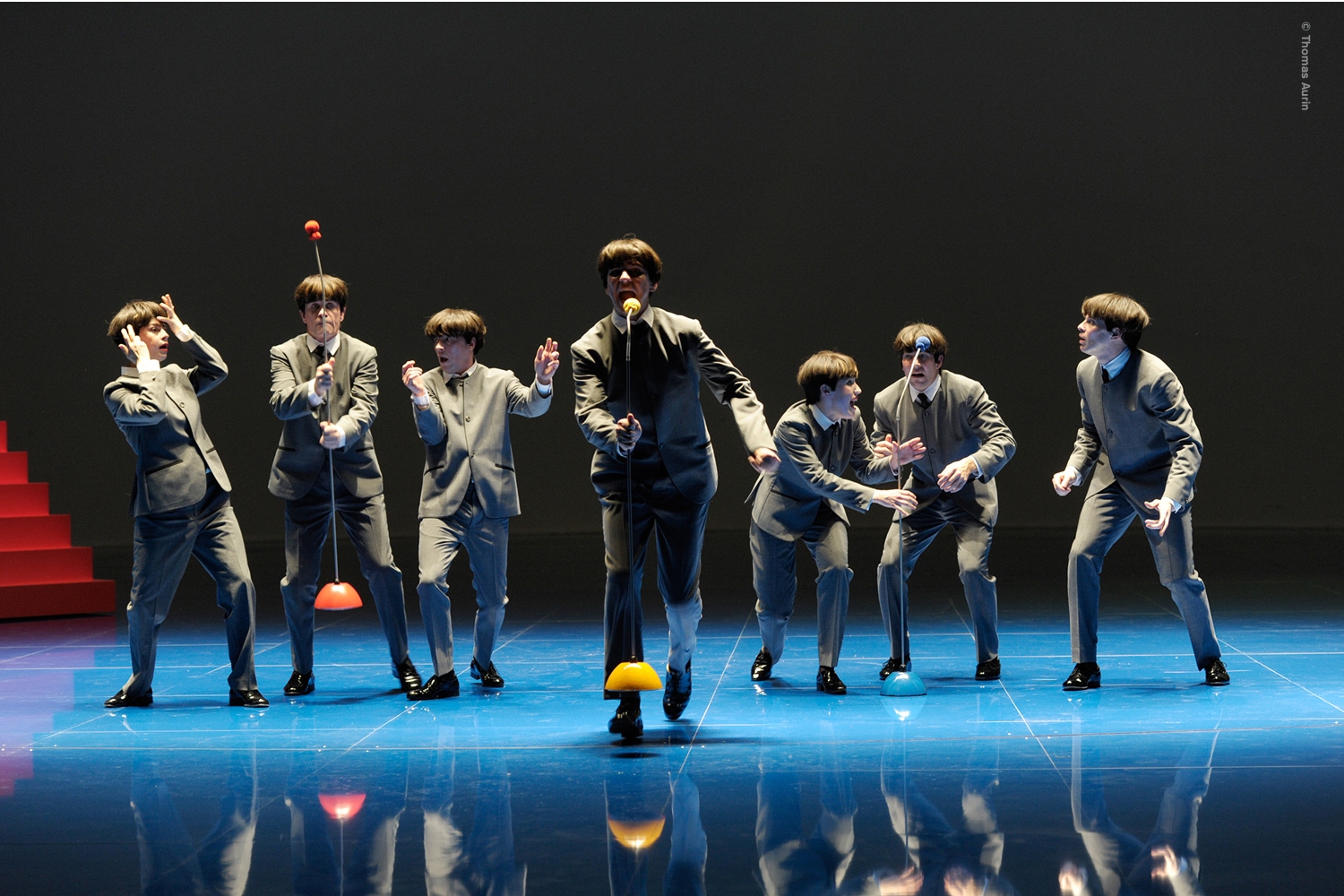


A comedy at last, a Vaudeville show – it is the year 1903 and it is Chekhov’s last word on a declining Russian empire after the abolition of serfdom and before the revolution. And a statement on life that is inherently without meaning.
A lovely, pristine cherry orchard comes under the auctioneer’s hammer. No encyclopaedia entry can ever prevent that. Its owners, their friends and servants indulge in reminiscences of its glory and golden times. Their inability to take action and careless financial capers have brought the landowners Ranevskaya and Gayev to the brink of bankruptcy. The merchant Lopakhin, son of a former serf on the estate, urges for immediate action: parcel or lease the land, build a dacha on it, anything that might save the orchard. But no one listens to him. They rather wait for money from a rich aunt or some other miracle. Shedding many tears, they decide to divert and delude themselves instead. Their tears disguise feelings of hysteria and let them get carried away. It is here where Chekhov’s dazzling sense of humour is at its best: an inability to communicate provokes misunderstandings, words which are not followed by any deeds, and persistent misinterpretations of the situation vouch for great Theatre of the Absurd.
The characters in the play essentially do nothing. It is merely the fate of the cherry orchard that moves the plot forward. Lopakhin who, as a child, adored Mme. Ranevskaya for her tender loving care and still sees himself as a peasant, wants to help and involuntarily becomes the arbiter of fate as he purchases the orchard and has the cherry trees cut down. Mme. Ranevskaya, already stricken with many bad grievances, calls for her share of misery lest her life be meaningless. Only a blow of fate will make her sigh: I wish I could forget my past! While the others want or have to start a new life (there’s work to do!), Lyubov Ranevskaya steers right into the next catastophe. One has turned the page, left and bid farewell - all is forgotten. Everything is the same as always. Only the sound of cutting wood is heard from a distance. But who cares anyway?
Anton Chekhov did not believe in god but all the more in the meaninglessness of life. As a child he learnt to mentally detach himself from his father who beat him up and was obsessed with faith. On his journeys through Russia as a doctor, himself being chronically ill, he got to know people from all walks of life. He was able to discern exactly where the past still lingered and where it was getting gently blown away by social change. Chekhov not only saw the dark sides and the extremes of human existence – he was able to make sense of them.
The redesigned 3rd Floor of Volksbuehne opens the new season with this rather opulent play. The director and set-designer Gero Troike has created a theatre space that resists closure by boldly baring its architectural structures thus initiating a fresh attempt at breaking the fourth wall: a model space that does not draw the distinction between stage and auditorium, a theatre space ready to be taken over.
With: Franziska Hayner (Ranjewskaja Ljbow Andrejewna, Gutsbesitzerin), Lisa-Theres Wenzel (Anja, ihre Tochter), Mandy Rudski (Warja, ihre Ziehtochter), Sina Kießling (Gajew Leonid Andrejewitsch, ihr Bruder), Betty Freudenberg (Lopachin Jermolaj Aleksejewitsch, Kaufmann), Jörg Henkel (Trofimow Pjotr Sergejewitsch, Student), Mario Pokatzky (Simeonow-Pischtschik Boris Borissowitsch, Gutsbesitzer), Sabine Zielke (Scharlotta Iwanowna, Gouvernante), Irina Kastrinidis (Epichodow Semjon Pantelejewitsch, Büroangestellter), Claudia Geisler (Dunjascha, Zimmermädchen), Horst Mendroch (Firs, Diener, ein alter Mann) and Samia Dauenhauer (Jascha, ein junger Diener)
Director: Gero Troike
Costumes: Dorothee Curio
Dramaturgy: Sabine Zielke